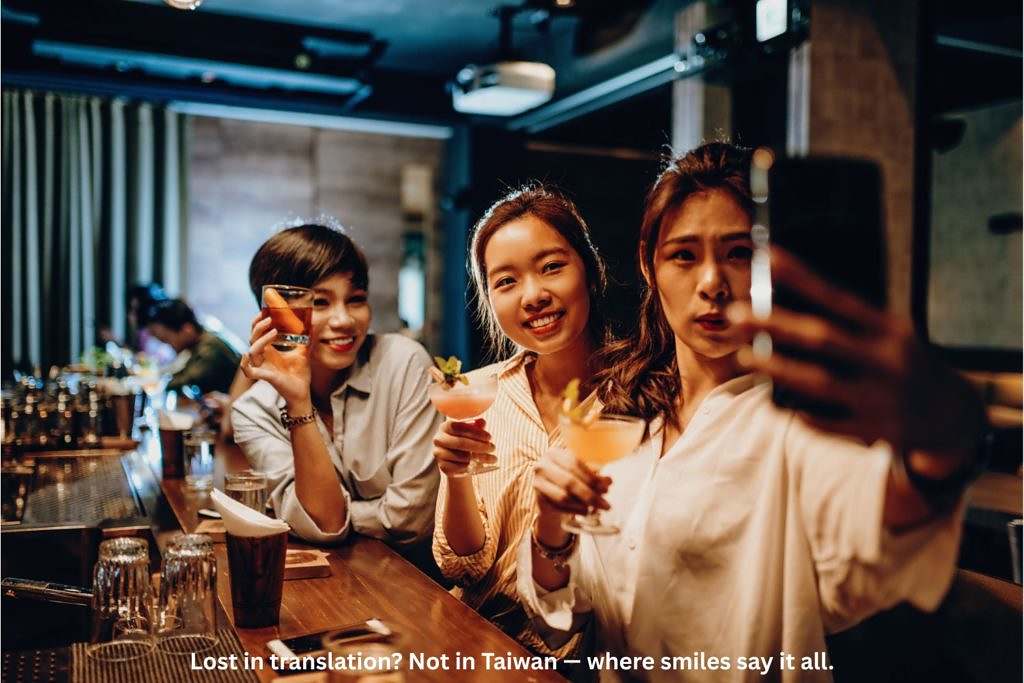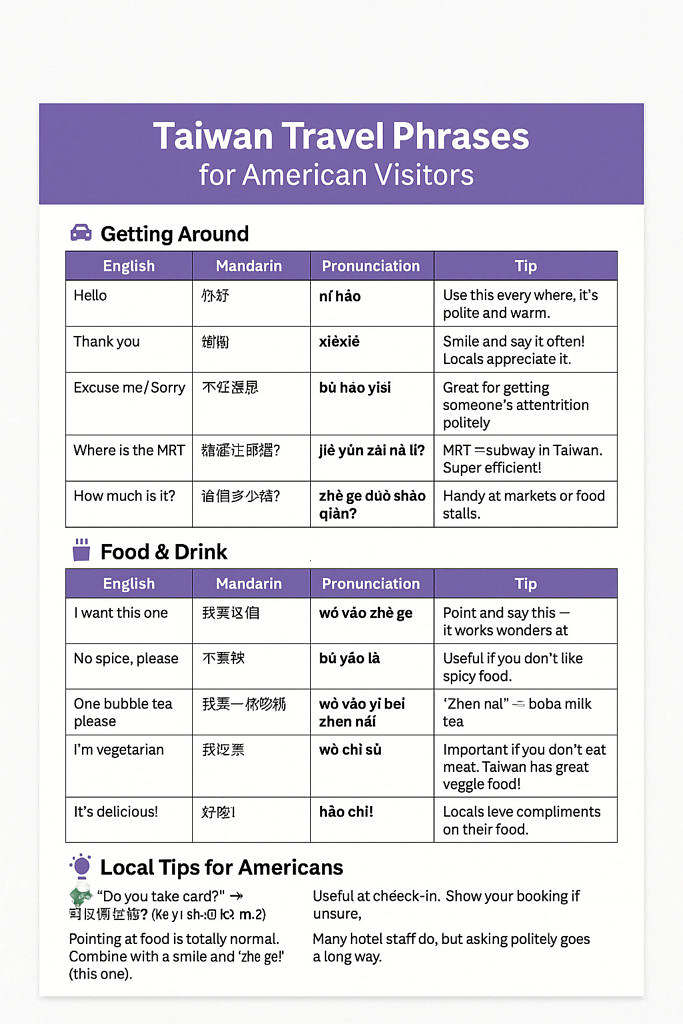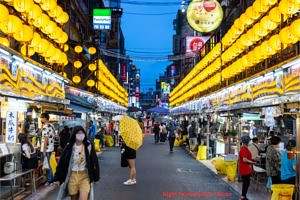What Language Do They Speak in Taiwan?
A Friendly Guide to the Island’s Unique Linguistic Mix
Taiwan is more than just night markets, bubble tea, and high-speed trains. It’s a place where language tells a deeper story—of identity, migration, resilience, and cultural pride. So what language do they speak in Taiwan? The answer isn’t as simple as “Mandarin.”
Whether you’re planning a trip, exploring your roots, or just curious about Taiwanese culture, this guide will help you understand the linguistic landscape of Taiwan—past and present.

Taiwan’s Main Language: Standard Mandarin (Guóyǔ)
Let’s start with the basics.
Standard Mandarin Chinese, known locally as Guóyǔ (國語), is the official language of Taiwan. It’s taught in schools, used in government, media, and business, and spoken by the majority of the population—especially in urban areas.
But here’s where it gets interesting…
Although it shares roots with Mainland China’s Mandarin, Taiwanese Mandarin has its own accent, vocabulary, and cultural flavor. For example:
- Mainland: 洗手间 (xǐshǒujiān) = restroom
- Taiwan: 廁所 (cèsuǒ) = restroom
- Mainland: 地铁 (dìtiě) = subway
- Taiwan: 捷運 (jiéyùn) = MRT
▶️ Fun Fact: Taiwan still uses traditional Chinese characters (繁體字), while Mainland China uses simplified characters (简体字).
More Than Mandarin: The Languages That Make Taiwan Unique
Taiwan is multilingual, and many people speak two or more languages daily. Here are the major ones:

1. Taiwanese Hokkien (臺語 / Táiyǔ)
Also called Taiwanese, this is the most widely spoken local language after Mandarin—especially in the south and among older generations.
- Origin: Southern Fujian province, China
- Sounds: Soft, melodic, and full of tones
- Use: Family conversations, local TV, traditional songs
▶️ It’s not mutually intelligible with Mandarin, even though they share some vocabulary.
2. Hakka (客家話 / Kèjiāhuà)
Spoken by the Hakka ethnic group, Hakka is used in some central and northern regions of Taiwan, like Hsinchu and Miaoli.
- Approx. 10–15% of the population speaks it
- Known for: Distinct pronunciation and poetic rhythm
3. Formosan Indigenous Languages
Taiwan is home to 16 officially recognized Indigenous groups, each with their own Austronesian language.
- Examples: Amis, Atayal, Paiwan, Bunun, Rukai
- These languages are unrelated to Chinese and more similar to Tagalog or Hawaiian.
- Many are endangered, but Taiwan has revitalization efforts underway, especially through cultural education.
A Historical Note: Japanese Influence on Language
From 1895 to 1945, Taiwan was under Japanese rule, and the older generation often speaks fluent Japanese or remembers Japanese words in everyday use.
You’ll still hear Japanese phrases in Taiwanese slang or see Japanese writing in old street signs and shop names.
Language in Daily Life: What You’ll Actually Hear
If you’re walking through a Taipei night market, you might hear:
- A shopkeeper speaking Mandarin to tourists
- Friends chatting in Taiwanese Hokkien
- An elderly couple speaking Hakka
- MRT announcements in four languages: Mandarin, Taiwanese, Hakka, and English!
For Travelers: Do I Need to Speak Chinese in Taiwan?
Short answer: No, but it helps.
Taiwan is tourist-friendly, especially in Taipei and popular destinations. Most signs are bilingual (Chinese-English), and many young people speak basic English.
Still, learning a few local phrases will go a long way.
Quick Language Guide for Taiwan
| Phrase | Mandarin (Guóyǔ) | Taiwanese Hokkien |
|---|---|---|
| Hello | 你好 (nǐ hǎo) | Lí hó |
| Thank you | 謝謝 (xièxiè) | To-siā |
| Yes | 是 (shì) | Sī |
| No | 不是 (bú shì) | Bô sī |
| Excuse me | 不好意思 (bù hǎo yìsi) | Pháinn-sè |
Why Taiwan’s Linguistic Diversity Matters
Understanding Taiwan’s language is about more than communication—it’s about understanding identity.
- Speaking Mandarin connects people to education and national unity.
- Speaking Taiwanese or Hakka connects people to their families and local pride.
- Reviving Indigenous languages connects people to the island’s ancient roots.
Taiwan is a living example of how languages can coexist and evolve—a story told through street signs, classroom lessons, and grandmother’s kitchen conversations.

Planning to Visit Taiwan?
Here are some language travel tips:
✅ Download a Mandarin translation app (like Pleco or Google Translate)
✅ Learn a few traditional characters (they’re beautiful!)
✅ Watch a Taiwanese drama or listen to Taiwanese pop before your trip
✅ Be polite—a smile and a “xièxiè” go a long way
Bonus: Want to Learn More?
👉 Check out our printable Taiwan Language Cheat Sheet for Travelers — includes basic phrases in Mandarin and Hokkien + pronunciation tips.
👉 Interested in deeper culture? Read: Expat Life in Taiwan: Culture, Comfort, and Unexpected Perks
FAQ – Language in Taiwan
Q: What is the main language spoken in Taiwan?
A: Mandarin Chinese (Guóyǔ) is the official and most commonly spoken language.
Q: Do people in Taiwan speak English?
A: Yes, many young people and professionals speak basic English, especially in urban areas.
Q: Is Taiwanese the same as Chinese?
A: Taiwanese Hokkien is a completely different spoken language from Mandarin. They’re not mutually intelligible.
Q: Are there Indigenous languages in Taiwan?
A: Yes! Taiwan’s Indigenous communities speak Austronesian languages like Amis and Atayal.
Q: Can I get around Taiwan without speaking Chinese?
A: Yes—especially in Taipei—but knowing a few phrases in Mandarin will greatly enhance your experience.
Taiwan Travel Phrases for American Visitors

🚕 Getting Around
| English | Mandarin | Pronunciation | Tip |
|---|---|---|---|
| Hello | 你好 | nǐ hǎo | Use this everywhere, it’s polite and warm. |
| Thank you | 謝謝 | xièxiè | Smile and say it often! Locals appreciate it. |
| Excuse me / Sorry | 不好意思 | bù hǎo yìsi | Great for getting someone’s attention politely. |
| Where is the MRT? | 捷運在哪裡? | jié yùn zài nǎ lǐ? | MRT = subway in Taiwan. Super efficient! |
| How much is it? | 這個多少錢? | zhè ge duō shǎo qián? | Handy at markets or food stalls. |
Food & Drink
| English | Mandarin | Pronunciation | Tip |
|---|---|---|---|
| I want this one | 我要這個 | wǒ yào zhè ge | Point and say this—it works wonders at night markets! |
| No spice, please | 不要辣 | bú yào là | Useful if you don’t like spicy food. |
| One bubble tea please | 我要一杯珍奶 | wǒ yào yì bēi zhēn nǎi | “Zhēn nǎi” = boba milk tea |
| I’m vegetarian | 我吃素 | wǒ chī sù | Important if you don’t eat meat. Taiwan has great veggie food! |
| It’s delicious! | 好吃! | hǎo chī! | Locals love compliments on their food. |
At the Hotel
| English | Mandarin | Pronunciation | Tip |
|---|---|---|---|
| I have a reservation | 我有預訂 | wǒ yǒu yù dìng | Useful at check-in. Show your booking if unsure. |
| Do you speak English? | 你會說英文嗎? | nǐ huì shuō yīng wén ma? | Many hotel staff do, but asking politely goes a long way. |
| Wi-Fi password? | Wi-Fi 密碼? | Wi-Fi mì mǎ? | Tech-ready Taiwan has Wi-Fi almost everywhere. |
Local Tips for English-Speaking Travelers in Taiwan
- Cash is still king at many small restaurants and night markets. Learn to say:
💵 “Do you take card?” → 可以刷卡嗎?(kě yǐ shuā kǎ ma?) - Pointing at food is totally normal. Combine with a smile and “zhè ge!” (this one).
- Don’t tip! Taiwan doesn’t have a tipping culture. It’s not rude—it’s just not expected.
Would you like this in a printable one-page cheat sheet with visuals or icons? I can prepare a ready-to-download PDF for your blog or newsletter.


